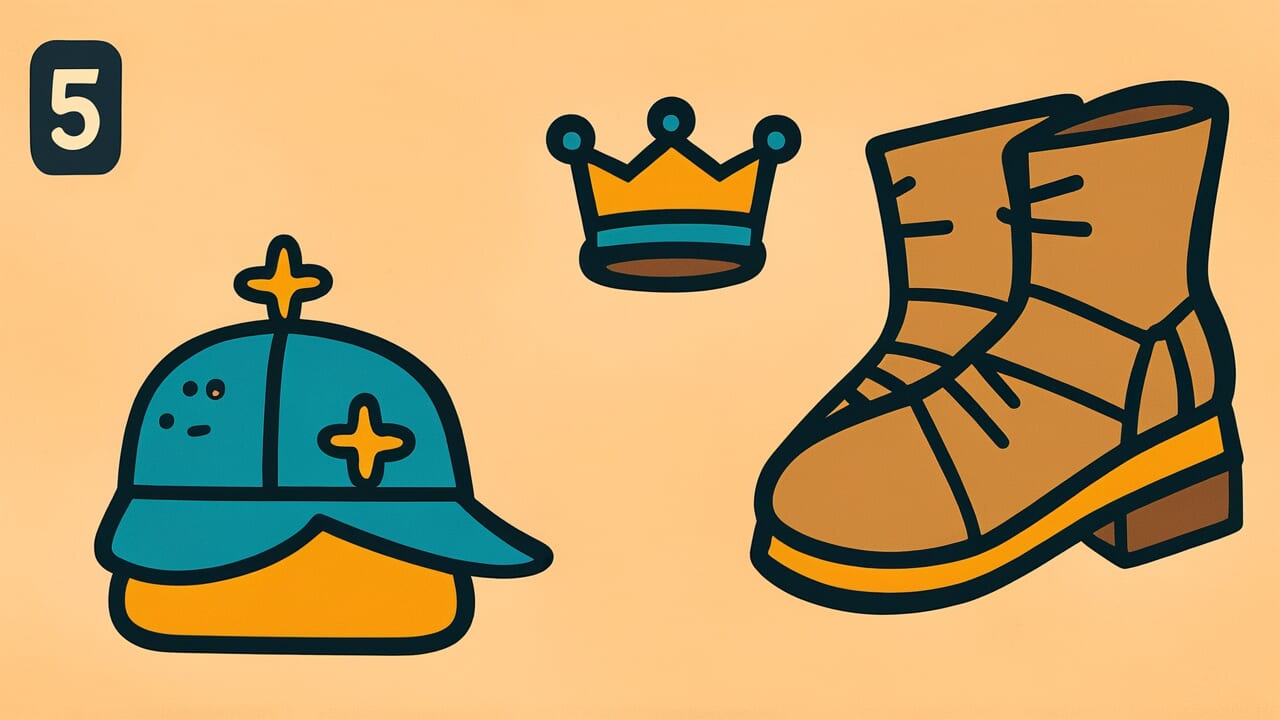How to Read “An ant in a shoe dislikes a crown”
Kutsu no ari, kanmuri wo kirau
Meaning of “An ant in a shoe dislikes a crown”
“An ant in a shoe dislikes a crown” is a proverb about people in low positions who reject high status. It describes someone who doesn’t understand what’s appropriate for their position.
Normally, people in low positions naturally admire high positions. But this proverb points out the opposite attitude.
Being in a low position like an ant in a shoe, yet disliking something as elevated as a crown, is clearly an unnatural attitude.
This proverb criticizes people who don’t recognize their own position or abilities. It applies to those who avoid high positions and responsibilities.
It also describes people who make inappropriate criticisms or rejections beyond their station. The expression points out arrogance disguised as humility.
Even today, this proverb accurately criticizes people who act superior despite lacking ability. It also applies to those who make excuses to avoid opportunities.
Origin and Etymology
No clear written records explain the origin of this proverb. However, we can make interesting observations from its components.
“Kutsu” means shoe, something worn on the feet. “Kanmuri” is a crown worn on the head by people of high rank.
The proverb vividly contrasts the lowest position with the highest. Footwear at the bottom versus a crown at the top represents the class system’s hierarchy.
The phrase “ant in a shoe” deserves special attention. An ant inside footwear symbolizes the absolute lowest position in human society.
Ants crawl on the ground. An ant inside a shoe occupies an even darker, more confined space. This thorough depiction of “lowness” forms the proverb’s core.
Yet this ant “dislikes a crown.” It rejects the high position it should naturally admire. This paradox contains irony about people who don’t know their place.
During the Edo period, Japan had a strict class system. This created fertile ground for proverbs that clearly showed social hierarchy.
People likely passed down this saying as a lesson against inappropriate behavior. It warned against acting beyond one’s station.
Interesting Facts
The word “kutsu” in this proverb isn’t commonly used today. In ancient times, it was a general term for all types of footwear.
It referred to sandals, wooden clogs, shoes, and anything worn on the feet. So “an ant in a shoe” meant an ant in any footwear. This thoroughly expressed the lowest possible position.
In Japanese culture, ants often symbolize diligence and hard work. But in this proverb, the ant simply represents “a small creature in a low position.”
The same insect carries different meanings depending on context. This is quite fascinating.
Usage Examples
- A newcomer who dislikes guidance from seniors is truly “an ant in a shoe dislikes a crown”
- A regular employee criticizing the president’s policy is exactly “an ant in a shoe dislikes a crown”
Universal Wisdom
“An ant in a shoe dislikes a crown” reveals a universal truth. It shows how difficult self-awareness truly is.
We all struggle to accurately assess our own position and abilities. Sometimes we overestimate ourselves. Sometimes we underestimate ourselves.
But this proverb sharply points out a specific contradiction. It criticizes being in a low position yet disliking high status.
Why do people take this attitude? Because they can’t accept their current situation.
Honestly admiring high positions means admitting you’re in a low position. When people can’t bear this, they protect their ego differently.
They say “that position isn’t so great” or “the responsibility isn’t worth it.” By denying high positions, they defend their self-esteem.
This proverb also shows the difference between humility and self-debasement. True humility means understanding your position and acting modestly.
But inappropriate criticism or rejection isn’t humility. It’s a lack of self-awareness.
Our ancestors understood this subtle human psychology. By using the extreme metaphor of an ant in a shoe, they vividly illustrated distorted self-perception.
When AI Hears This
Ants navigate two-dimensional ground space by following chemical trails. They recognize colony members through touch and use gravity as their downward reference.
Their entire sensory system is optimized for a ground-dwelling ecological niche. But place them at crown height, and everything changes.
Ground chemical information disappears. Wind effects increase. Only gravity sense remains reliable. For ants, high places become an “informational vacuum” where most evolved sensory tools become useless.
In ecology, we call the environmental conditions where organisms survive most efficiently their niche. Interestingly, survival costs rise exponentially outside that niche.
An ant at one centimeter versus ten centimeters seems similar energy-wise. But consider reduced information gathering, delayed predator detection, and decreased homing probability. Survival rates drop dramatically.
Human organizations show the same structure. Excellent engineers promoted to management find their specialized skills suddenly useless.
Their refined “sensory apparatus” no longer applies. Required abilities change with higher positions, but adaptation speed can’t keep up.
Just as ants instinctively avoid crowns, humans should develop senses to identify their own niche.
Lessons for Today
This proverb teaches modern people the importance of self-awareness. Whatever position you’re in now, growth begins by honestly accepting it.
Being in a low position isn’t shameful. Everyone starts as a beginner, in a learning position. What matters is how you move forward after accepting that reality.
Denying high positions or running from responsibility ultimately costs you growth opportunities.
At the same time, this proverb teaches the essence of humility. True humility means understanding your position and learning what you need to learn.
Admitting “I still have much to learn” isn’t weakness. It’s strength.
Modern society offers more chances to compare ourselves with others through social media. This makes self-evaluation easier to distort.
That’s why we need courage to honestly examine where we are now. We need to walk steadily forward from there.
Even an ant in a shoe can eventually walk freely on the earth. Believe in that possibility. Start by accepting who you are today.



Comments